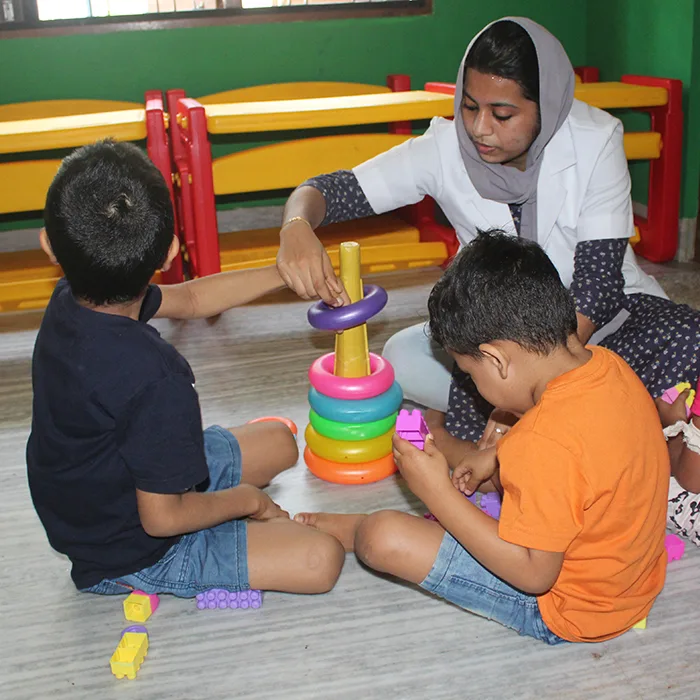Complex Autism spectrum disorder
Autism — what we know (and what we don’t know yet) Jeevaniyam Hospital
–Dr. Reshmi Pramod
“I would just like to take you through a few frequently asked questions from a parent’s perspective.
Autism spectrum disorder, First of all, when your child gets diagnosed with autism the question which comes into your mind is when will my child come out of the spectrum? Dear parents, do not panic and think of a cure or when my child will come out of the spectrum. Instead, focus on the strengths and try to address his or her issues scientifically and thereby helping him to become independent in all areas of daily living.Then what haunts a parent’s mind is will my child be able to talk.
Here you have to understand talking is different from communication. Your child communicates Chris or her needs verbally or through various gestures. Support him or and understand what he points out or try to communicate through you in various manners and understand his or her emotions.Then when a child doesn’t give even a single eye contact or when you feel your child is in her or her own world you really feel frustrated and depressed.
Do not panic as your child is able to read your mind at times far better than your typically growing child. So always be happy and be with your child, support them, and see how your child progresses day by day. For more updates stay well and get educated with autism updates and its management.”
Jeevaniyam Ayurvedic Hospital is a specialized healthcare center that provides treatment for children with autism. The hospital is dedicated to using Ayurvedic medicine to help manage the symptoms of autism in children. Ayurvedic medicine is a natural form of medicine that has been used for centuries to promote health and well-being.
Children with autism receive personalized treatment plans that are designed to address their unique needs. The hospital’s team of Ayurvedic doctors and therapists work together to develop a comprehensive treatment plan that may include herbal remedies, dietary changes, and lifestyle modifications.
In conclusion, Autism Spectrum Disorder (ASD) is a complex neurodevelopmental condition that affects individuals in various ways. It is characterized by challenges in social communication and interaction, as well as repetitive behaviors or interests. While there is no known cure for ASD, early intervention and support can greatly improve outcomes for individuals with the condition.
It is important to recognize that individuals with ASD have unique strengths and abilities, and with the right support and understanding, they can lead fulfilling lives. Educating ourselves and others about ASD can help create a more inclusive and accepting society.
If you suspect that you or someone you know may have ASD, it is important to seek out a professional evaluation and diagnosis. With early identification and appropriate interventions, individuals with Autism Spectrum Disorder can achieve their full potential and live happy, fulfilling lives.
Additionally, it is important to note that while there is a wide range of symptoms and behaviors associated with ASD, every individual with the condition is unique. Some individuals with ASD may have exceptional abilities in areas such as music, art, or math, while others may struggle with sensory processing or executive functioning.
It is also crucial to address common myths and misconceptions about Autism spectrum disorder, such as the belief that individuals with ASD lack empathy or that they are all intellectually disabled. In reality, individuals with ASD can have a wide range of intellectual abilities, and many have a strong sense of empathy and a desire to connect with others.
Furthermore, access to appropriate services and support can vary greatly depending on factors such as geographic location and socioeconomic status. It is important to advocate for resources and services that can benefit individuals with Autism spectrum disorder and their families, such as early intervention programs, educational support, and access to healthcare.
Overall, understanding and accepting individuals with Autism Spectrum Disorder is essential for creating a more inclusive and equitable society. By promoting awareness and advocating for access to resources and services, we can support individuals with ASD in achieving their full potential and living fulfilling live.



